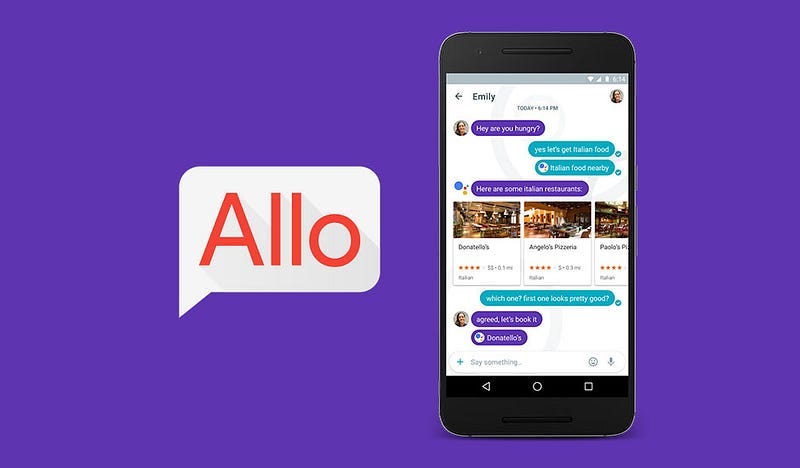Google’s Allo will take over Search
How conversational context is going to highjack your search results
So, chatting with @google on Allo these last few days has been fun — a little frustrating when it gets it wrong, but fun anyway.
In fact, I think it has a chance of infiltrating Google’s core product: Search.
So, at the core of using @google on Allo is the idea of a conversation. One ‘message’ continues on from the previous and both you and @google can see the context of your writing. This is what Google can introduce to Search, both on the phone and on the web: the ability to see your contextual conversation. Each ‘message’ in Allo is equivalent to a new query in Search; the difference is that in Search, you don’t get to see the context of your conversation with Google, only the answers to your most recent request.
So, here is what I envisage:
The Problem
Right now, every new query on Search brings up a whole new page. You get results, ask another question and get a whole new screen with new results; your old results are gone. This never used to be a problem, but now that we are starting to search in context with follow up answers, a whole new page in response to every new question means we can’t see the context of the conversation anymore. Yes, you can click ‘back’ to take another look, but that actually just repeats the previous search and then you lose the flow of the search/conversation. If conversational search is going to work, we need to be able to see the whole conversation in one place.
The Solution
Turn Allo upside down. Search on mobile and the web has the search box at the top of the screen. Let’s imagine it looks the same, but works like Allo upside down — both on mobile and the web. When you enter a new query in the box and hit return, your query appears as a sort of speech bubble below the search box (in Allo, it appears above). When Google returns the results of your query, it ‘pushes’ your speech bubble down the page: It is still there, but you might have to scroll below the search results to see it. If you enter another query, the search result stays on the page, but your new speech bubble thing pushes it down a little. Continue this pattern, with new queries and search results appearing at the top and pushing previous results further down, like a Facebook newsfeed. Sure, at some point the lowest entry would disappear to save on memory, but you could bring it back by scrolling down to it.
The point is, you can see everything to do with that particular series of search queries all in one place and you can follow it like a conversation from first search to most recent response. Open new tabs on your desktop browser and you can have separate conversational searches simultaneously and reduce the chances of getting confused between them because you can see the entire conversation of each one.
Of course, this method might create other problems
1 — How to deal with multiple pages of search results.
Sometimes you need to get to page four of the search results before you get what you were looking for.
Solution: Each search result is presented as its own little mini webpage. You can scroll through different pages of results using that Goooooooooogle page indicator thing we are all already used to. The mini webpage just scrolls sideways to the right page without shifting its position in the ‘conversation’ chain.
2 — Bandwidth
Search tries to search quick for everyone, meaning it does it using as little bandwidth as possible — that’s another reason why they changes their logo a year or so ago: to save a few mili-seconds on loading over slow connections. A conversational search might take up more bandwidth and slow down search on the web.
Solution: “Maybe it won’t” is about as good a response as I can have to this one. I like to imagine that after most of the page elements are already loaded, it might actually reduce the data required for each follow-up search/request. In this way, it might only be the first set of results that take a little bit more data. But it wouldn’t be much and it might be worth it and I can’t imagine this system being much slower at loading that it already is. It would certainly reduce the flickering that currently happens every time the whole page has to re-load after a new search query.
3 — I don’t want conversational search
Change is bad. I completely agree. Besides, most of the time I just do a single search and find what I want from there. I’m not really interested in having a conversation.
Solution: Toggle it. If you want, you can go back to the old method where the whole page has to reload every time you hit return.
So, that’s it. I think presenting results in this way would make conversational search easier and more likely to happen — and Google do want us to search more, after all.
What do you think? Would Google ever risk their core product like this?


